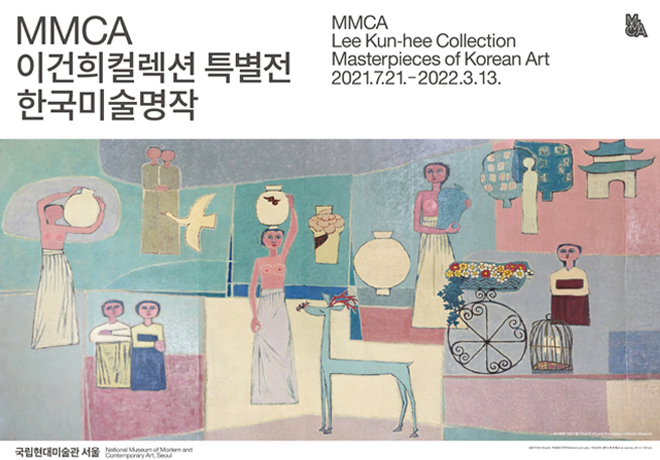MMCA Film & Video (MFV) presented the Asian Film and Video Art Forum (AFVAF) in collaboration with Hand-made film lab SPACE CELL in 2015. The first edition of AFVAF was co-curated by seven curators in Asia to introduce works by artists based in Asia and to seek original discussions. The participating curators decided that there was no necessary reason to bring togetherfilms or moving images under the name of the Asian continenton the grounds of regional affinity. However, we also had to admit that there was indeed, although intangible, a sense of similarity among the artists. With the ambitions of the curators who are willing to introduce and share the currents in Asian film and video art, MFV decided to host this forum as a biennial program with anticipation of developing it into a sustained field of discourse.
In 2016, MFV and Hitomi Hasegawa, the director of MIACA(Moving Image Archive of Contemporary Art) and curator agreed to co-curate the second edition of AFVAF. Hitomi Hasegawa examined how films deliberate and reflect the acute and urgent problems that humanity, rather than artificially identified local communities, faces. Despite differences in historical, social, and political conditions within Asia, young artists carry the agony of humanity on their shoulder, unfolding on-going silent rebellion. In this respect, Hitomi Hasegawa’s suggestion—<KNOCK –Videos and Films on the Genealogy of Socially Engaged Art in Asia>—demands us to ask once more a long-standing question of what artistic engagements are through artistic media and gestures. Three curators—Xin Zhou, Inti Guerrero, Wiwat Lertwiwatwongsa—have joined the forum to introduce significant works that they have discovered.
It’s been told that the origin of the word ‘Asia’ is from a figure in Greek mythology by the same name. Asia in ancient times was a huge land mass, and thus the Greek name ‘Asia’ reflects a broad concept of regional contrast to Greece and Egypt in terms of history. From ancient eras to the present day, there clearly have been societies and political affairs that can be recognized as ‘Asia.’ Employed at times as a buzzword with unclear boundaries and implications, there are indeed invisible points of connection between the neighboring histories. Such conjunctures require close examination not on a make-believe concept of the Asian community but on the regional reality of Asia. Films and moving images from Asian regions, with histories burdened with shades of imperialism, consequences of dictatorship, and the wounds of civil war, reflect their societies and politics, at times with a voice of solidarity, and at times in the modes of guerrillas or specters. The second edition of AFVAF introduces various attempts, ranging from films as acts of resistance for the sake of negating and destroying the unjustifiable, to works suggesting a potential of another means of participation through aesthetic forms that strive to get as close as possible to reality. Unfortunately, we could not afford to introduce works from all Asian countries, a grand continent with the largest population in the world. The program is led by a limited group of five curators, born or based in Korea, Japan, China, Hong Kong, and Thailand.
MMCA Film & Video anticipates that this biannual encounter of Asian Film and Video Art Forum will open the lively and inventive scene of dialogue and discourse among Asia-based artists, curators, critics, producers and distributors.
Curators
Kim Eunhee, Hitomi Hasegawa
Co-Curators
Inti Guerrero, Xin Zhou, Wiwat Lertwiwatwongsa
Artists
Chim↑Pom, Kyun-Chome, Li Binyuan, Fujiko Nakaya, Hikaru Fujii, Moe Satt, Li Xiaofei, Chang Chao-Tang, Hakudo Kobayashi, Yuji Morioka, Kavich Neang, Chen Chieh-jen, Yau Ching, Anand Patwardhan, Peter Kennedy, John Hughes, Phil Collins, Richard Fung, Wang Bing, Chen Zhou, Zhu Shengze, George Clark, Au Sow-Yee, Chia-Wei Hsu, Hao Jing Ban, Mok Chiu-Yu, Li Ching, Nontawat Numbenchapol, Paijong Laisagoon, Euthana Mukdasanit, Pimpaka Towira, Nguyen Trinh Thi, Wattanapume Laisuwanchai, Nok Paksnavin, Nutcha Tantivitayapitak, Jung Yoonsuk, Kim Il-rhan, Lee Hyuk-sang, Gina Kim, Sylbee Kim, Cha Jeamin, Kang Sang-woo, Jang Minseung
※ 2nd Asian Film and Video Art Forum_Brochure
※ 2nd Asian Film and Video Art Forum_Screening schedule
Program
Level 7 feat.
Myth of Tomorrow, Chim↑Pom
The Story of
Making Lies, Kyun-Chome
Freedom Farming, Li Binyuan
Spring in the
Sewer, Li Binyuan
Friends of
Minamata Victims - Video Diary, Fujiko
Nakaya
The Education
System of an Empire, Hikaru Fujii
Hands Around in
Yangon, Moe Satt
A Cart of Coals, Li Xiaofei
On the Road, Chang Chao-Tang
Old People's
Values, Hakudo Kobayashi, Fujiko
Nakaya, Yuji Morioka
Three Wheels, Kavich Neang
Realm of
Reverberations, Chen Chieh-jen
We Are Alive, Yau Ching
In the Name of
God, We Are Not Your Monkeys,
Anand Patwardhan
On Sacred Land, Peter Kennedy, John Hughes
The Meaning of
Style, Phil Collins
Chinese
Characters, Richard Fung
15 Hours, Wang Bing
Life Imitation, Chen Zhou
Another Year, Shengze Zhu
Untitled (Eyemo
Rolls), George Clark
Kris Project I:
The Never Ending Tale of Maria, Tin Mine, Spices and the Harimau, Au Sow-Yee
Ruins of the
Intelligence Bureau, Hsu Chia-Wei
An Afternoon
Ball, Hao Jingban
Off Takes, Hao Jingban
Letter to the
Young Intellectuals of Hong Kong, Mok Chiu-Yu, Li Ching
Boundary, Nontawat Numbenchapol
Tongpan, Euthana Mukdasanit,
PaijongLaisagoon
The Purple Kingdom, Pimpaka Towira
Letters from Panduranga, Nguyen Trinh
Thi
Dreamscape, Wattanapume Laisuwanchai
Drinking Tear,
Mending Heart, Drink Everlasting Drop, Nok Paksnavin
Mr. Zero, Nutcha Tantivitayapitak
Bamseom Pirates, Seoul Inferno, Jung Yoonsuk
The Remnants, Kim Il-rhan, Lee Hyuk-sang
Bloodless, Gina Kim
Carols of
Cockayne, Sylbee Kim
Chroma-key and
Labyrinth, Jeamin Cha
Clean Me, Like We Are Not Here, Kang Sang-woo
Arcadia, Jang Minseung
